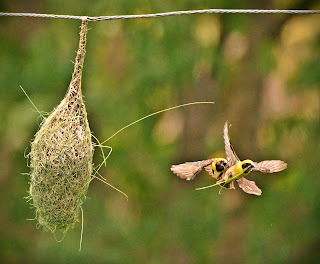
THE WILDLIFE WHISPERER (PART 4 – Conservation) In my jungle forays I started witnessing that jungles and jungle safaris were managed differently. The rules of entry and exit, the training of naturalists, the involvement / buy-in of local communities, and the comfort of tourists had tremendous variations. Some forests were thriving with species and tourists, while others were thriving with species but had few tourists. My first idea, two years ago, was of floating a naturalist exchange programme, from different forests, for cross-learning purposes. I felt privileged that I get to visit multiple parks, but so many of the excellent naturalist did not have similar kind of opportunity, when they would benefit so much more from these visits. Couple of conversations later I realised that the Ministry of Environment and Forest (MoEF) did have a similar programme, challenge as always was in its execution. Two further ideas that I deliberated upon was the provision of basic benefits ...




